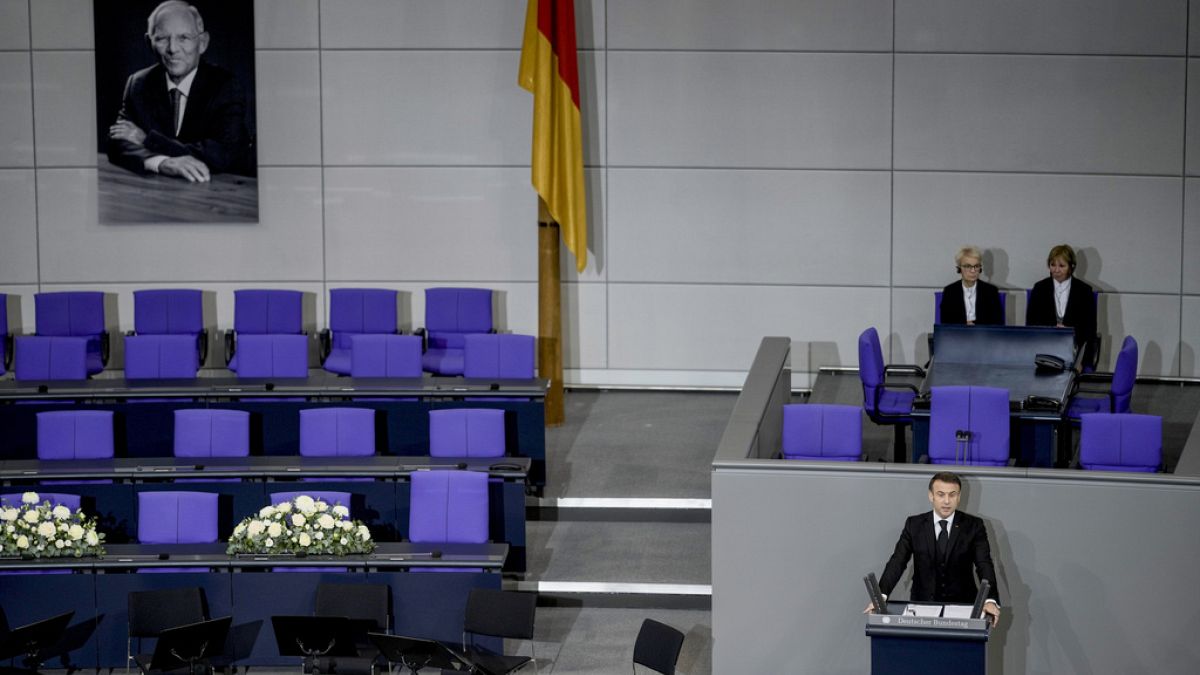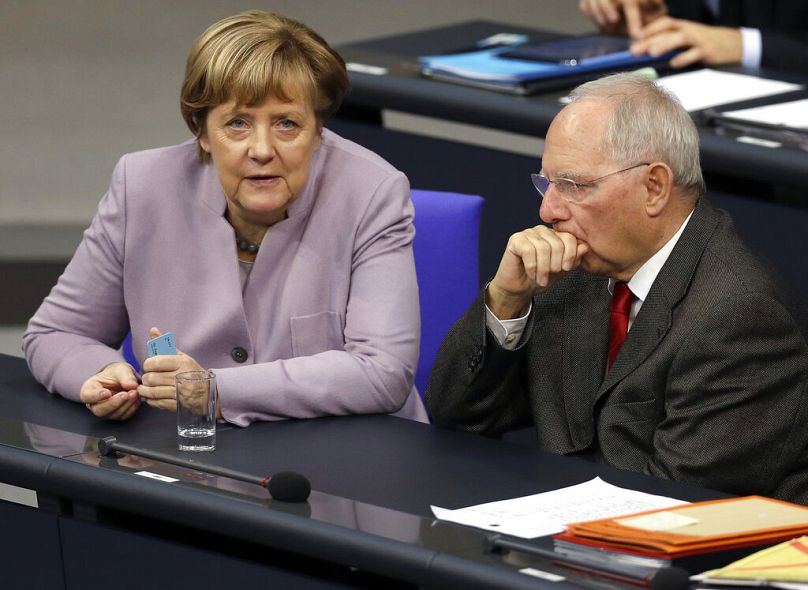The French President spoke about the former finance minister's importance to the France-Germany relationship.
French President Emmanuel Macron has paid tribute to former finance minister Wolfgang Schaeuble at a memorial in the German parliament.
Schaeuble, the country’s longest-serving lawmaker who helped negotiate German reunification, died in December at age 81.
Macron, Bundestag president Baerbel Bas and Christian Democrats leader Friedrich Merz praised Schaeuble’s long years of service in the German government and his commitment to a unified Germany and the European project.
“Germany has lost a statesman, Europe has lost a pillar, France has lost a friend,” Macron said.
He spoke about Schaeuble’s importance to the France-Germany relationship, noting it was fitting that Monday’s memorial event took place on the anniversary of the Elysee Treaty, which was signed on 22 January 1963, to mark a new era of ties between the two countries in post-war Europe.
Schaeuble played an outsize role in German politics: He first joined West Germany’s Cabinet in 1984, serving as Chancellor Helmut Kohl’s chief of staff for five years before becoming interior minister.
In that job, Schaeuble was a key West German negotiator as the country headed toward reunification with the communist east after the 9 November 1989, fall of the Berlin Wall. He helped ready the treaty that created the legal framework for unification on 3 October 1990.
A mentally disturbed man shot Schaeuble at an election rally in 1990, just after reunification. He was paralyzed from the waist down and used a wheelchair for the rest of his life. He returned to work weeks later and, the following year was credited with helping sway Germany’s parliament to move the reunited nation’s capital from Bonn to Berlin.
Schaeuble became Chancellor Angela Merkel’s finance minister in October 2009, just before revelations about Greece’s ballooning budget deficit set off the crisis that engulfed the continent and threatened to destabilize the world’s financial order. In that role, he was a central figure in the austerity-heavy effort to drag Europe out of its debt crisis.
Schaeuble most recently served as president of Germany’s Bundestag, and was the country’s longest-serving lawmaker.
Merz said that Schaeuble had a reputation for being “tough” on certain issues, including the financial crisis, but added that “he was always fair — he was always prepared to listen respectfully to his counterpart and was always ready to make compromises in the interests of Europe.”
Bas, the current Bundestag president, described Schaeuble as “the consummate public servant.”
“For him, the office always came first, then the person,” she said.
“He overcame political setbacks and personal strokes of fate,” Bas said. “He continued on for this democracy and this country, and he achieved historic things.”

